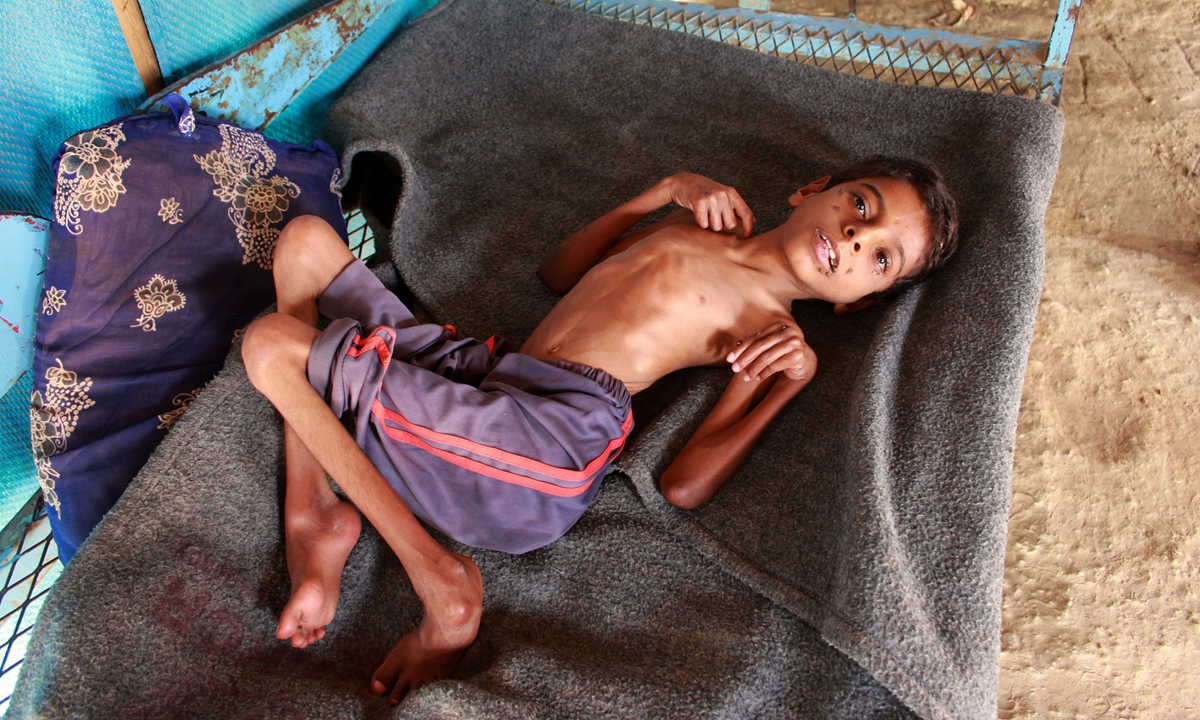Childhood emaciation spikes with pandemic
Source: AFP Published: 2020/7/28 16:08:41

A Yemeni child suffering from malnutrition lies on a bed in Yemen's northern Hajjah Province on Monday. The war in Yemen, the Arabian peninsula's poorest country, has mutated into what the United Nations calls the world's worst humanitarian crisis. Photo: AFP
The unprecedented social and economic crisis caused by the novel coronavirus pandemic will see nearly 7 million more children experience stunting as a result of malnutrition, the United Nations (UN) said on Tuesday.Even before COVID-19 there were an estimated 47 million children under five who were moderately or severely wasted, most living in sub-Saharan Africa and Southeast Asia.
Now as lockdowns and international trade routes disrupt vital aid supplies, the UN warned that the coronavirus pandemic could have an "intergenerational effect" on the health of millions.
Writing in The Lancet medical journal, a team of experts showed the results of computer modelling estimates on food supply in 118 poor and middle-income nations.
They found that the prevalence of moderate or severe wasting among under-fives would increase 14.3 percent - equating to an additional 6.7 million cases.
Wasting occurs when the body is so acutely malnourished that its muscles and fat begin to diminish.
A host of research initiatives have shown clear links between wasting and chronic and severe health conditions later in life.
"The profound impact of the COVID-19 pandemic on early life nutrition could have intergenerational consequences for child growth and development and life-long impacts on education, chronic disease risks and overall human capital formation," wrote the researchers.
The models showed that in the worst case scenario where the pandemic could cause young children to miss 50 percent of their nutritional care and treatment services, nearly 180,000 could die in 2020 alone.
AFP
Posted in: CROSS-BORDERS